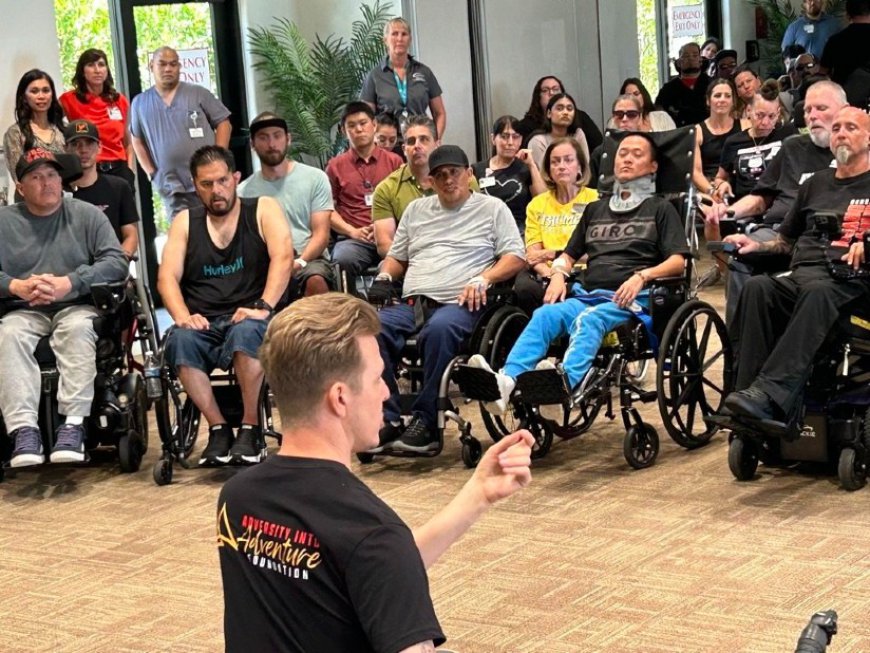Understanding the Importance of Rehabilitation for Disabilities and Well-Being

Rehabilitation is a holistic approach that helps individuals enhance their well-being and engage in society. It is a person-centered, goal-oriented process that ensures good health, such as healing and disease prevention, and promotes independent living. There are 2.4 billion people in the world who need rehabilitation, and we know this need is set to increase due to changes in population structure compounded by a rise of chronic diseases and long-term disability.
Learn the importance of rehabilitation for disabilities and how it enhances quality of life. Discover its benefits, including improved mobility, self-esteem, and independence for individuals with disabilities.
How Does Rehabilitation Help with Disability?
Rehabilitating oneself can take quite some time. The type and quantity of resources needed will differ from person to person based on their goals and the kind and severity of their impairment. Obviously, effective rehabilitation helps disabled people reach their goals, and the more rehab training is done, the better it works.
However, again, it will mainly depend on the type of disability that individual has. For example, it is reasonable to expect that a patient who undergoes knee surgery will have a full recovery, but unfortunately, the same cannot be said for someone with an acquired brain injury.
Benefits of Rehabilitation in Disability
Rehabilitation is important for disabled people because of its many benefits, including:
Support Groups and Connections to Other People With Similar Conditions
Being part of a support group can create a feeling of community and acceptance for those affected by the disease, while vice versa; it provides emotional reinforcement. Support groups give people self-esteem, confidence, and the ability to speak up for themselves and others.
Renewed Self-Esteem
Rehabilitation includes learning to identify self-defeating thoughts, changing them, and taking care of yourself in a loving way that builds self-esteem. The aim is not to support disabled people but rather to help them regard themselves from an eternal perspective.
Increased functions of Affected Body Parts
Supportive rehabilitation improves a person’s capacity for self-care and mobility by teaching compensatory techniques or alternate means of accomplishing tasks and offering self-help gadgets. This could involve changing the surroundings or providing helpful technology, which is sometimes known as adaptive rehabilitation. Numerous body processes, such as issues with the bowels and bladder, chewing and swallowing, thinking or reasoning, movement or mobility, speech, and language, can all benefit from rehabilitation.
Reduced Impacts of Medical Conditions
Rehabilitation provides individuals with the tools and skills they need to live life on their own terms, including dealing with chronic health conditions that may arise as they get older.
This has two benefits: it saves society, helps individuals with expensive hospital stays, reduces the need for financial assistance, and enables people to live independently or return to work.
This, in turn, would be advantageous to society as a whole by fostering independence and employment.
Prevents Complications
Tertiary prevention refers to preventive actions intended to aid in recovery after a serious illness. Healthcare providers can now focus on rehabilitating, retraining, and re-educating those who have already experienced a handicap or impairment. Rehabilitation aims to minimize suffering, maximize the number of years that a patient may live with quality, and eliminate or diminish impairment as a means of lessening the effects of an established disease. Tertiary prevention, as used in epidemiology, seeks to lessen the frequency and severity of consequences. This is what rehabilitation and treatment are for.
Promotes Well-Being
Rehabilitation enables a child, adult, or senior to engage in employment, leisure activities, and life roles while assisting them in being as independent as feasible in day-to-day activities. It helps individuals to do so by treating underlying issues and enhancing their daily functioning, assisting them in overcoming challenges with thinking, speaking, or moving about. Everybody may require rehabilitation at some point in their lives, whether it is because of an age-related decline in mobility or an injury, surgery, illness, or other circumstance.
Understand how rehabilitation may improve the lives of people with disabilities and foster their well-being. Join the Adversity into Adventure community to discover individualized treatment and support for long-lasting improvement.
